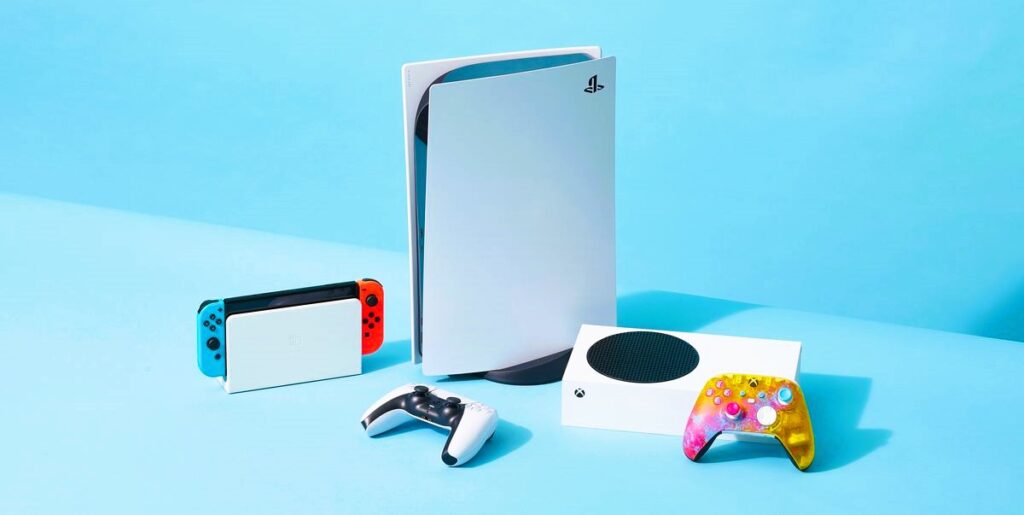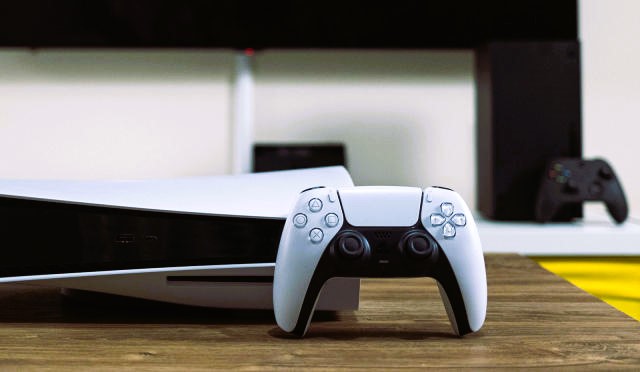Gaming consoles have come a long way since the days of pixelated graphics and simple controllers. From the advent of home gaming with the Atari 2600 to the immersive experiences offered by the latest PlayStation and Xbox consoles, the gaming industry has witnessed a remarkable evolution. As technology continues to advance at an unprecedented pace, what lies ahead for the next generation of gaming consoles? In this exploration, we’ll delve into the current state of gaming consoles, the trends shaping their evolution, and the possibilities that the future holds.
The Current Landscape: Powerhouse Consoles and Cloud Gaming
As of now, the gaming console market is dominated by the PlayStation and Xbox brands, each offering powerful hardware, extensive game libraries, and a rich ecosystem of services. The PlayStation 5 and Xbox Series X/S represent the pinnacle of console gaming, boasting cutting-edge processors, advanced graphics capabilities, and features like ray tracing for lifelike visuals.
Cloud gaming has also emerged as a significant player in the gaming ecosystem. Services like Xbox Cloud Gaming (formerly known as Project xCloud) and NVIDIA GeForce Now allow players to stream games directly to their devices, eliminating the need for high-end hardware. This shift towards cloud gaming raises questions about the future of traditional console hardware.
Trends Shaping the Future of Gaming Consoles:

- Cloud Gaming Dominance: The rise of cloud gaming services is reshaping the gaming landscape. As internet infrastructure improves and 5G becomes more widespread, players can expect even more seamless experiences, with the potential to play resource-intensive games on a variety of devices.
- Subscription Services and Game Pass Models: Subscription-based models, such as Xbox Game Pass and PlayStation Now, are gaining popularity. These services offer a vast library of games for a monthly fee, changing how players access and experience games. The future may see an expansion of these models with more exclusive titles and additional perks.
- Cross-Platform Play and Progression: The demand for cross-platform play and progression is on the rise. Players want the ability to seamlessly switch between devices while retaining their progress and playing with friends on different platforms. The next generation of consoles may prioritize enhanced cross-platform compatibility.
- Integration of Virtual Reality (VR): While VR has made strides in the gaming industry, it has yet to become a staple in every gamer’s home. The next evolution of gaming consoles may focus on more accessible and immersive VR experiences, making virtual reality a standard feature rather than a niche option.
- Enhanced Social and Interactive Features: Gaming is increasingly becoming a social activity. Future consoles may place a stronger emphasis on interactive features, such as advanced voice and gesture controls, virtual hangout spaces, and new ways for players to connect and share their gaming experiences. For tips on building your own gaming PC, read our beginner’s guide.
What’s Next for Gaming Consoles: A Glimpse into the Future
While predicting the exact trajectory of gaming consoles is challenging, several trends and possibilities provide insights into what the future may hold:
- Modular and Upgradeable Consoles: Future consoles could adopt a more modular design, allowing users to upgrade specific components, such as graphics cards or storage, without having to replace the entire console. This approach would align with the flexibility and customization seen in PC gaming.
- AI-Enhanced Experiences: The integration of artificial intelligence (AI) could revolutionize gaming consoles. AI algorithms could adapt gameplay based on individual preferences, provide more realistic NPC behaviors, and enhance overall gaming experiences through personalized content recommendations.
- Sustainable Gaming: With increasing awareness of environmental impact, future consoles may prioritize sustainability. This could involve energy-efficient hardware designs, eco-friendly materials, and initiatives to reduce electronic waste through recycling programs.
- Blockchain and NFT Integration: The use of blockchain technology and non-fungible tokens (NFTs) may find a place in the gaming industry. Consoles could explore incorporating blockchain for secure in-game transactions, ownership of virtual assets, and unique gaming experiences tied to NFTs.
Platforms for Staying Informed:

To stay abreast of the latest developments and insights into the future of gaming consoles, platforms like IGN serve as invaluable resources. These platforms provide in-depth coverage, reviews, and analyses of gaming hardware, industry trends, and upcoming releases.
Conclusion: Embracing the Next Level of Gaming
The evolution of gaming consoles is an ongoing journey, marked by technological advancements, changing consumer preferences, and the industry’s response to emerging trends. As we look ahead, the future promises an exciting era of gaming that goes beyond traditional boundaries. Whether through cloud gaming, innovative hardware designs, or immersive social features, the next generation of gaming consoles is poised to take us to new heights. Embrace the evolution, stay informed, and get ready for the next level of gaming excellence.


